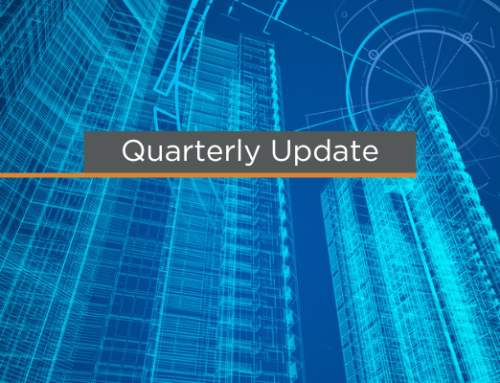By Jennifer French, CPA
Download our whitepaper Construction & Real Estate: Trends, Updates, and Strategies.
The United States Department of Labor (DOL) recently implemented extensive revisions to the Davis-Bacon Act, marking the Act’s most comprehensive update in forty years. These new regulations, in effect since October 23, 2023, are set to significantly influence federal construction projects.
Among the key modifications is a notable increase in the prevailing wage. Concurrently, the IRS has proposed clarifications concerning prevailing wage standards and apprenticeship requirements for companies pursuing tax credits under the Inflation Reduction Act, particularly for investments in renewable energy.
Background on the Davis-Bacon Act
The Davis-Bacon Act (DBA), a fundamental piece of U.S. labor legislation established in 1931, sets a minimum wage for the construction industry. Initially, it applied to new construction, repairs, and alterations, ensuring a base compensation for workers. It also introduced the concept of a prevailing wage, which isn’t inherently a union rate but the most commonly paid single wage—whether union or non-union—for a specific area or project.
Over time, the DBA has evolved, with the Department of Labor (DOL) overseeing prevailing wage determinations and expanding coverage to include certain fringe benefits for contractors and subcontractors. These benefits include modern-day essentials like paid time off, retirement packages, health insurance, or their cash equivalents.
Before the recent overhaul, the DBA saw its last comprehensive update in 1981–1982. Since then, Congress has expanded the DBA’s scope by including numerous Related Act statutes under its umbrella. Currently, the DBA and its 71 active Related Acts collectively impact an estimated $217 billion in annual Federal and federally assisted construction spending. This legislation significantly influences the compensation and livelihoods of approximately 1.2 million U.S. construction workers.
Looking ahead, these figures are expected to grow. Both Federal and State governments acknowledge extensive infrastructure needs, particularly in energy and transportation systems. As these efforts intensify, the DBA and its related statutes remain pivotal frameworks for determining compensation and standards within the construction industry.
New Regulations
Updated Davis-Bacon Act regulations from October 2023 bring significant changes affecting contractors and subcontractors involved in government-funded projects. These changes are complex; the IRS established a resource for frequently asked questions about prevailing wage and apprenticeship standards under the Inflation Reduction Act.
Key Changes in the New Rule
- Revised Prevailing Wage Definition: The rule reinstates the original definition of prevailing wage, referring to the wage paid to at least 30 percent of workers in a specific trade and locality. Advocates believe this offers a more precise measure compared to the previous 50 percent benchmark.
- Simplified Wage Updates: The rule is meant to streamline the process by allowing the DOL’s Wage and Hour Administrator to adopt prevailing wages from state and local governments. This eliminates resource-intensive contractor surveys and ensures more timely updates.
- Enhanced Enforcement Measures: The updated regulations introduce an anti-retaliation clause within contracts to protect workers who raise concerns. They also bolster the DOL’s authority to withhold contractor funds for compensating employees for lost wages, strengthening enforcement capabilities.
Contractor-Relevant Changes
- Expanded Definition of “Secondary Locations”: The revision broadens secondary site definitions to include sites specifically established for Davis-Bacon Act projects or exclusively dedicated for a specified period. This contrasts with the prior version, which had limited application to project-established sites.
- Revised Criteria for “Material Suppliers” Exemption: The new regulations define “material supplier” as companies solely delivering materials, with off-site manufacturing facilities exempt from Davis-Bacon Act compliance. Any on-site construction work categorizes companies as contractors or subcontractors unless meeting these criteria.
- DOL Authorization for Back Wages: Contractors might be required to pay back wages, even without Davis-Bacon Act clauses or wage determinations in the contract. The contracting agency could be mandated to reimburse contractors for these back wages.
- Prime Contractor Definition and Increased Liability: The expanded definition includes controlling shareholders, joint venture members, and those overseeing substantial construction. This potentially holds owners accountable for Davis-Bacon Act violations by the prime contractor.
- Upper Tier Subcontractor Liability: Upper tier subcontractors are now responsible for lower tier subcontractors’ failures to pay Davis-Bacon Act-mandated prevailing wages, extending to paying back wages and potential debarment.
- Requirement for “Annualization” of Fringe Benefit Contributions: Contractors cannot use fringe benefit plan contributions from private projects to fulfill prevailing wage obligations for Davis-Bacon Act projects.
Apprenticeship Requirement
The DBA does not mandate the use of apprentices on covered projects but allows their participation if enrolled in DOL or state-registered apprenticeship programs.
However, the Inflation Reduction Act (IRA) requires the use of apprentices and mandates payment at rates specified by their registered apprenticeship program. Traditionally, apprentices have been paid a portion of the prevailing wage rate for a skilled worker on DBA projects.
Importantly, the IRA’s apprenticeship criteria encompass three components: a labor hours requirement, a ratio requirement, and a participation requirement.
This entails dedicating a percentage of total labor hours to qualified apprentices, maintaining specific ratios of apprentices to journeymen, and employing at least one qualified apprentice when employing four or more laborers or mechanics in construction–unless a good-faith exception applies.
The proposed IRS regulations signal the necessity for meticulous record-keeping regarding apprentices’ employment, including written requests, agreements with apprenticeship programs, verification of apprentice participation, adherence to prescribed ratios, and payroll records for apprentice work.
Reactions and Outlook
The new regulations are facing legal challenges from both Associated Builders and Contractors (ABC) and Associated General Contractors of America (AGC). They filed lawsuits against the federal government, claiming the Davis-Bacon rule change is illegal. Both organizations opposed the change through comments before taking legal action, consistently highlighting potential negative effects on their members, the market, and taxpayers.
ABC specifically advocated for removing clauses favoring unions in project labor agreements, citing their potential to stifle competition and workforce utilization, especially within the predominantly non-unionized construction industry. Simultaneously, an ABC survey revealed that 98 percent of contractors expressed reluctance to bid on clean energy projects due to concerns about the IRA’s prevailing wage and apprenticeship policies, signaling significant industry apprehension regarding participation under these regulations.
Despite the ongoing litigation, the DOL has refrained from commenting. However, it’s apparent that the DOL foresaw these challenges, evident in the inclusion of explicit “severability” provisions in the regulations. These provisions allow unaffected parts of the regulations to remain salvageable if specific sections are contested and invalidated in court.
Monitoring these legal battles is crucial, as outcomes may significantly affect the implementation of these updated regulations. For detailed insights and guidance on navigating these changes, contact Jennifer French, Team Leader of PBMares’ Construction & Real Estate practice.





